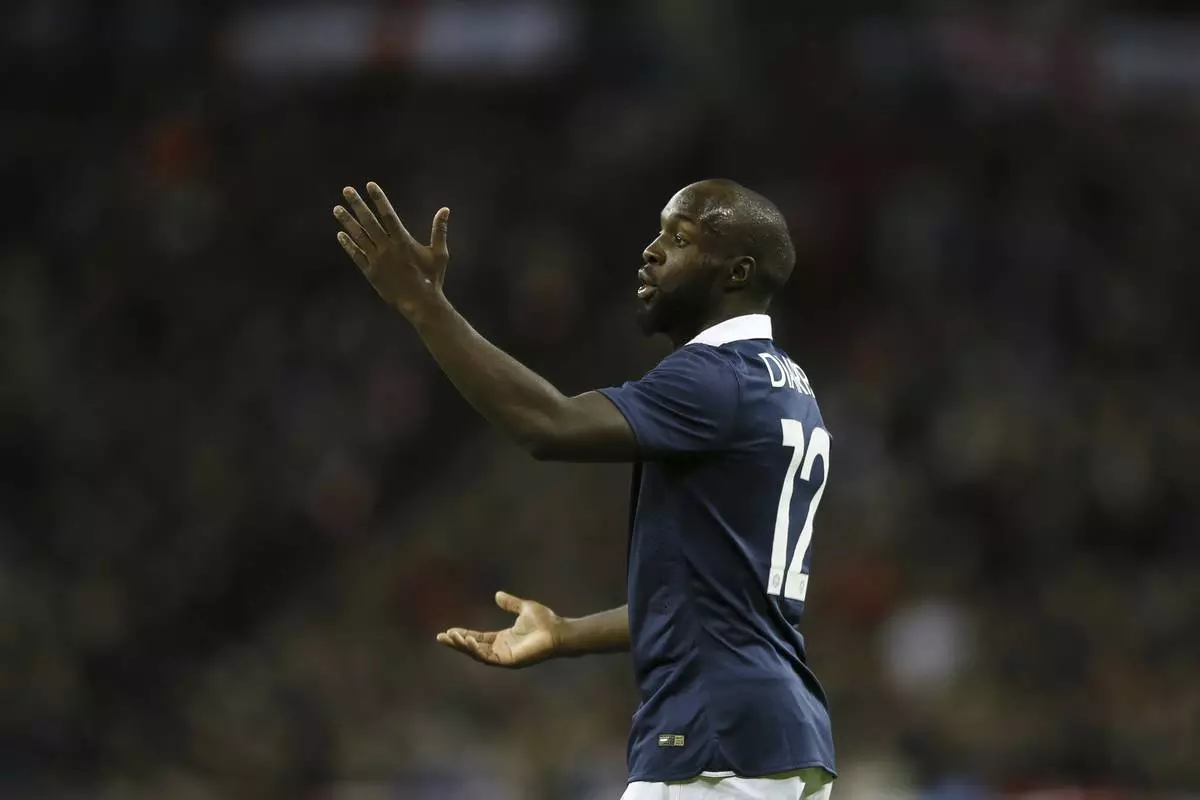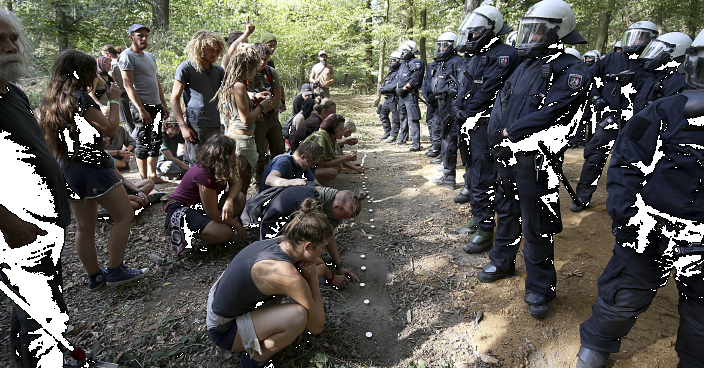A former SS guard is to go on trial in Germany on charges of accessory to murder for serving at the Nazis' Stutthof concentration camp.
The 94-year-old, who hasn't been identified due to German privacy laws, is accused of working as a guard at the camp from June 1942 to the beginning of September 1944.
Dortmund prosecutor Andreas Brendel said Friday that though he's not linked to a specific crime at the camp, the fact that more than 60,000 people were killed in Stutthof made him an accessory to at least hundreds of the killings.

FILE - In this Sept. 7, 2018 file photo bucket wheels dig for coal near the Hambach Forest near Dueren, Germany. On Friday, Oct. 5, 2018 a German court has ordered a temporary halt to plans to fell part of a forest in the west of the country to allow the expansion of a coal mine. (AP PhotoMartin Meissner, file)
Brendel says the suspect, whose trial starts Nov. 6 in Muenster state court, admits serving at Stutthof but was unaware of the killings and didn't participate.
BRUSSELS (AP) — FIFA rules on transfers can conflict with European Union legislation relating to competition and freedom of movement because they limit possibilities for players to change clubs, and for clubs to hire, a senior EU legal adviser said on Tuesday.
Advocate General Maciej Szpunar gave his opinion after French soccer player Lassana Diarra legally challenged FIFA rules.
The Diarra case went through FIFA judicial bodies before the 2016 election of FIFA president Gianni Infantino, who has made it a priority to modernize transfer market rules.
Former France international Diarra signed a four-year contract with Lokomotiv Moscow in 2013. The deal was terminated a year later after Diarra was unhappy with alleged pay cuts.
Lokomotiv Moscow applied to the FIFA dispute resolution chamber for compensation and the player submitted a counterclaim seeking compensation for unpaid wages. The Court of Arbitration for Sport found the Russian club terminated the contract with Diarra “with just cause” and the player was condemned to pay 10.5 million euros ($11.2 million).
Diarra claimed his search for a new club was hampered by FIFA rules stipulating that any new side would be jointly responsible with him for paying compensation to Lokomotiv.
The former Real Madrid player also argued that a potential deal with Belgian club Charleroi fell through because of the FIFA rules, and sued FIFA and the Belgian federation at a Belgian court for damages and loss of earnings of six million euros ($7 million).
Szpunar proposed the European Court of Justice should reply to the questions referred by the Belgian tribunal “by finding that the FIFA rules governing contractual relations between players and clubs may prove to be contrary to the European rules on competition and freedom of movement of persons."
“He finds that there can be no doubt as to the restrictive nature of (FIFA transfer regulations) with regard to freedom of movement," the court said in a statement, noting the restrictive rules can be justified only in specific circumstances.
“These provisions are such as to discourage and dissuade clubs from hiring the player for fear of financial risk. The sporting sanctions faced by clubs hiring the player can effectively prevent a player from exercising his or her profession with a club located in another member state.”
Advocates General routinely provide legal guidance to the ECJ. Their opinions aren’t binding on the Luxembourg-based court, but are followed in most cases.
Concerning competition rules, Szpunar found that FIFA rules on transfers, “by limiting clubs’ ability to recruit players, necessarily affect competition between clubs on the market for the acquisition of professional players.”
Szpunar's opinion follows a court ruling last year finding that UEFA and FIFA acted unlawfully to block the rebel Super League.
AP Sports Writer Graham Dunbar in Geneva contributed.
AP soccer: https://apnews.com/hub/soccer

FILE - France's Lassana Diarra reacts during the international friendly soccer match between England and France at Wembley Stadium in London, Tuesday, Nov. 17, 2015. A senior legal adviser says some FIFA rules on transfer of players can be in breach of European Union legislation relating to competition and freedom of movement. Advocate General Maciej Szpunar gave an opinion on Tuesday after French soccer player Lassana Diarra challenged FIFA rules. (AP Photo/Kirsty Wigglesworth, File)











